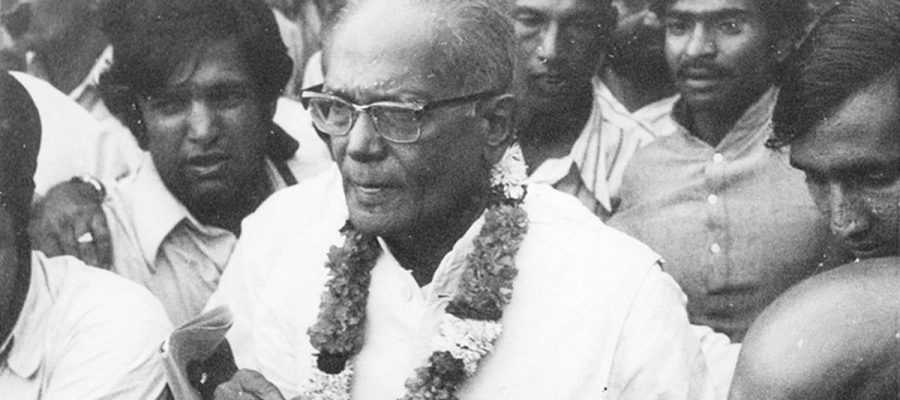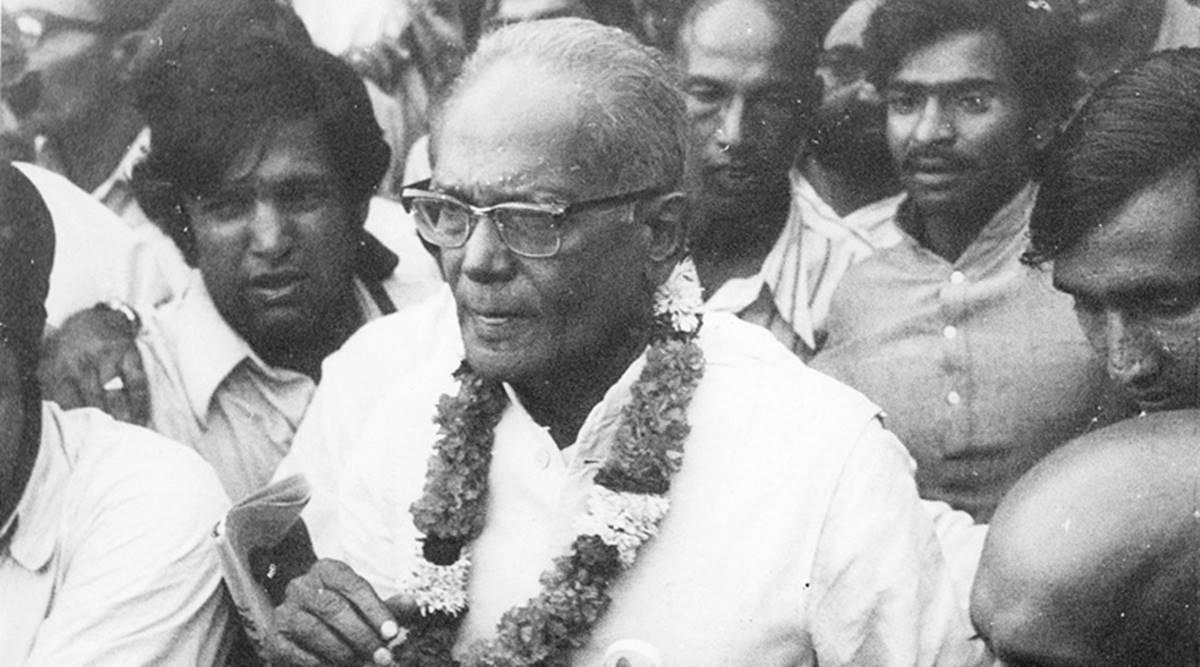Ravi Shankar Prasad writes: Even though power was within his reach many times, he preferred to work at the grassroots, strengthening India’s democratic foundation.
Jayaprakash Narayan was an outstanding leader of modern India. October 8 marked the 42nd death anniversary of the man who remains a “Lok Nayak” in popular esteem and is affectionately called JP. He was a freedom fighter of great courage and one of the pioneers of the socialist movement in the country. He galvanised support for the Bhoodan movement, worked relentlessly for the poor and the underprivileged and, above all, became a symbol of the national conscience in the fight against corruption, anti-democratic conduct and repressive practices of Indira Gandhi’s government in the 1970s. He was a man of great intellect and ethical values and standards. Power sought him many times but he remained immune to it, because he wanted to work for the people at the grassroots and strengthen democratic foundations.
A recent biography of JP, The Dream of Revolution, authored by Bimal Prasad and Sujata Prasad, is an excellent portrayal of his life, containing fascinating details about the various stages of his evolution. Bimal Prasad was a well-known professor of South Asian studies, a leading intellectual and author of numerous books, including a trilogy on Partition. He was a close associate of JP and had edited selections of his writings, speeches and letters, which were published in 10 volumes. He passed away in 2015, while working on JP’s biography, and the book was completed by his daughter Sujata, an author of repute, besides being a heritage conservationist and a distinguished former civil servant.
JP remains one of my true icons. I had the privilege and honour of working actively under his leadership as a very young student activist in the JP movement in Bihar, during which I was imprisoned. I also actively participated in the anti-Emergency struggle. Therefore, I read this book with a lot of nostalgia.
JP’s life had many parts: His formative years, evolution as a political leader, his Congress-socialist years; how he waged a guerrilla struggle against the British in the Terai region of Nepal. He grew from socialism to Sarvodaya, becoming the leader of resistance against a repressive, anti-democratic regime. This led to the conclusive defeat of the Indira Gandhi government in 1977 and the installation of the first-ever non-Congress government at the Centre. Finally, he suffered disillusionment before his death in 1979. The book describes each stage of his life in a comprehensive manner, reflecting upon the mark he left on the collective consciousness of the country.

Subsequent events brought JP closer to Jawaharlal Nehru, and he became an important leader of the freedom movement. He also became associated with the socialist movement. He became a national hero when he scaled the high walls of the Hazaribagh Central Jail, with the help of trusted comrades, who made a human ladder to help him escape. Thereafter, he set up the Azaad Dasta in the Terai region of Nepal to resist British rule.
After India’s independence, Nehru was keen to involve him in the government but JP was not meant for power politics. The book contains very elaborate discussions on JP’s differences with leaders like Gandhiji, Nehru, Sardar Patel and Indira Gandhi on various issues, but he never compromised on basic courtesies and respect.
JP was a voracious reader and the sheer range of the books he read is awe-inspiring. His booklet From Socialism to Sarvodaya, which I read for the first time in jail, is my all-time favourite. His powerful comment — “the mystical goddess dialectic materialism can no more deliver” — still resonates in my ears.
The sheer force of JP’s personality had welded together disparate and diverse elements into a strong cohesive force and established the JP movement. He toured the country, awakened the people, suffered lathi blows himself but ensured that all of us follow his command, “Hamla chaahe jaisa hoga, haath hamara nahi uthega.”
I remember when Mrs Gandhi had accused the Jan Sangh of being a fascist body, JP had the courage to come to its national conference and declare that if the Jan Sangh was fascist, then he too was a fascist.
The biography describes in great detail the underground resistance during the anti-Emergency struggle, including Prime Minister Narendra Modi’s role in Gujarat, when he disguised himself in traditional Sikh attire to continue his underground activities.
It is truly a remarkable story about one of the greatest sons of India who personified ethics and morality in the public life of the country. Whether it was the possibility of becoming the prime minister or the president — both positions were within his reach on many occasions — nothing could deviate him from his chosen path to work for the people in the villages and awaken them.
This column first appeared in the print edition on October 9, 2021 under the title ‘The man and the movement’. The author is a former Union minister and Member of Parliament from Patna Sahib Lok Sabha constituency.
Source: Read Full Article


